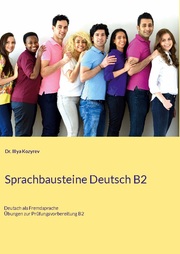The Future of Education and Labor (E-Book, PDF)
The Future of Education and Labor
eBook - Arts, Research, Innovation and Society
Bibliographische Informationen
Format: Digitale Rechteverwaltung: Digitales Wasserzeichen
Beschreibung
This book explores the ways in which education impacts labor markets. Specifically, the contributions in this book indicate that the future of labor is creative, socially aware and inter-disciplinary while identifying the changes and innovations needed in our educational systems to meet this demand.
Due to an increasing automatization (robotic manufacturing), the character of labor and work in general will change dramatically in the near future. This will be the case not only in the western countries, but also in the larger emerging economies in Asia, for example China and India. While societal environments, economy and the character of labor are increasingly in a process of dramatic changes, the educational systems and the leading principles of research about labor and employment are not changing adequately. Cross-disciplinary (inter-disciplinary and trans-disciplinary) thinking and learning is not the main focus of our educational systems. Consequently, the systems of academic research follow and apply disciplinary or even sub-disciplinary strategies, avoiding cross-disciplinary research approaches, and not supporting inter-disciplinary academic career models. This book introduces such strategic models to better prepare the next generation of workers for the new knowledge economy, and the future of democratic societies.
Autorenportrait
Gerald Bast is president of the University of Applied Arts Vienna, Austria since 2000. As university president Gerald Bast initiated various new programs and departments focusing on cross-disciplinarity and the interrelation between arts, science and society. He published in the fields of university law, university management as well as educational and cultural policy and lectures globally on the role of art, creativity, innovation and higher education.
Elias G. Carayannis is Full Professor of Science, Technology, Innovation and Entrepreneurship, as well as co-Founder and co-Director of the Global and Entrepreneurial Finance Research Institute (GEFRI) and Director of Research on Science, Technology, Innovation and Entrepreneurship, European Union Research Center (EURC), at the School of Business of the George Washington University in Washington, DC.
David F. J. Campbell is Associate Professor (Privat-Dozent) in Political Science at theUniversity of Vienna; a Project Manager and Researcher at the Center for Educational Management and Higher Education Development, Department for Continuing Education Research and Educational Technologies, at Danube University Krems; a Quality Enhancement Expert and Quality Researcher at the University of Applied Arts in Vienna; and a Research Fellow (Senior Scientist) at the Institute of Science Communication and Higher Education Research (WIHO), Faculty for Interdisciplinary Studies (iff), Alpen-Adria-University of Klagenfurt.
Inhalt
Chapter 1: Introduction to The Future of Education and Labor.- Chapter 2: The Future of Education and Labor.- Part One: The Future of Education and Labor, The Economy Does Matter, The How and Why.- Chapter 3: An OECD Learning Framework 2030.- Chapter 4: The Consequences of Industry 4.0 for the Labour Market and Education. Scenario calculations in line with the BIBB-IAB qualifications and occupational field projections.- Chapter 5: The Knowledge Capital of the Network Firm: Socialization versus Business Appropriation of Scientific Work.- Chapter 6: The Co-Evolution of Labor and Creativity: A Way from the Old to the New Economy.- Chapter 7: Collaborative Creativity and Creative Collaboration as Future Work Paradigms: A Philosophical Conception and Real-Practices. A Case Study of the Practical Case of the Banff Centre.- Chapter 8: The Trends and Prospectives of Professional Economic Education in Russia.- Chapter 9: From Universal Higher Education for All to Differentiated Skills for All The Shifting Rationale of The OECD Regarding Education and Labor.- Part Two: The Future of Education and Labor, The Arts Do Matter, The How and Why.- Chapter 10: Artists as Translators in Societal Turns.- Chapter 11: Forward Design. Creative Technologies in Art Education.- Chapter 12: Becoming Worldwide. Transdisciplinary Ways of Collaborations in Philosophy and the ArtsA Case Study.- Chapter 13: Querkraft Cross-Force Art as Education. Transversal Practices versus Economic Rationalization.- Chapter 14: Conclusion: The Future of The Future of Education and Labor.- Index.
E-Book Informationen
„eBooks“ sind digitale Bücher. Um eBooks lesen zu können, wird entweder eine spezielle Software für Computer, Tablets und Smartphones oder ein eBook-Reader benötigt. Da es eBooks in unterschieldichen Formaten gibt, gilt es, folgendes zu beachten.
Von uns werden digitale Bücher in drei Formaten ausgeliefert. Die Formate sind EPUB mit DRM (Digital Rights Management), EPUB ohne DRM und PDF. Bei den Formaten PDF und EPUB ohne DRM müssen Sie lediglich prüfen, ob Ihr eBook-Reader kompatibel ist. Wenn ein Format mit DRM genutzt wird, besteht zusätzlich die Notwendigkeit, dass Sie einen kostenlosen Adobe® Digital Editions Account besitzen. Wenn Sie ein eBook, das Adobe® Digital Editions benötigt, herunterladen, erhalten Sie eine ASCM-Datei, die zu Digital Editions hinzugefügt und mit Ihrem Account verknüpft werden muss. Einige eBook-Reader (zum Beispiel PocketBook Touch) unterstützen auch das direkte Eingeben der Login-Daten des Adobe Accounts – somit können diese ASCM-Dateien direkt auf das betreffende Gerät kopiert werden.
Da eBooks nur für eine begrenzte Zeit – in der Regel 6 Monate – herunterladbar sind, sollten Sie stets eine Sicherheitskopie auf einem Dauerspeicher (Festplatte, USB-Stick oder CD) anlegen. Außerdem ist die Anzahl der Downloads auf maximal 5 begrenzt.
Weitere Artikel aus der Kategorie "Pädagogik/Erwachsenenbildung"
Vergriffen

Lieferbar innerhalb ca. einer Woche

Lieferbar innerhalb 24 Stunden

Lieferbar innerhalb 24 Stunden






